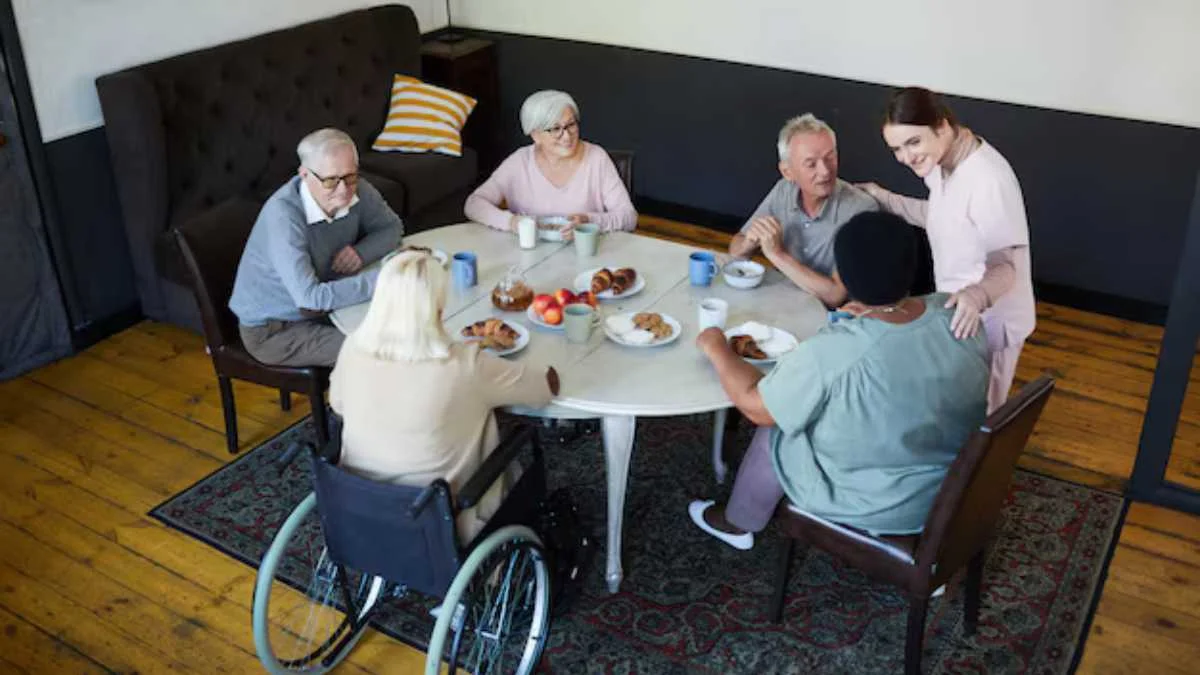HEALTH AND FITNESS
Memory Care Facilities: What You Need to Know

When it comes to ensuring loved ones with memory-related conditions, such as Alzheimer’s or dementia, receive the care they need, memory care facilities often provide the best solution. These specialized environments are designed to offer safety, comfort, and tailored support that can dramatically improve the quality of life for residents while providing peace of mind to their families.
This blog post dives into the details of memory care facilities, exploring their unique advantages and their role within the broader spectrum of senior living and elderly care. If you’re considering this option for someone close to you, here’s what you need to know.
Table of Contents
What Are Memory Care Facilities?
Memory care facilities are a specialized type of senior living community that focuses on caring for individuals experiencing memory-related conditions, such as Alzheimer’s disease, dementia, or other cognitive impairments. Unlike standard assisted living options, these facilities are intentionally structured to support the unique needs of memory care residents, offering personalized care plans, specialized activities, and secure environments that mitigate risks like wandering.
Why Consider Memory Care?
Choosing memory care is a decision rooted in providing the best possible quality of life for an elderly loved one facing cognitive challenges. Here are some key reasons why memory care is a game-changer:
1. Personalized Elderly Care Plans
Memory impairments affect everyone differently. Memory care facilities excel in tailoring elderly care plans to address the individual needs of each resident. From medication management to assistance with daily tasks such as dressing or eating, everything is carefully adjusted to suit their specific situation.
2. Safety and Security
Wandering is one of the most common and dangerous behaviors in people with advanced memory conditions. Memory care facilities come equipped with secure entrances and exits, ensuring a safe environment that significantly minimizes the risks of unsafe wandering while fostering a sense of personal freedom.
3. Specialized Staff Training
Caregivers in memory care facilities undergo extensive training in understanding and managing cognitive impairments. They are adept at providing compassionate assistance in a way that minimizes stress and confusion while fostering dignity for residents.
4. Engaging and Therapeutic Activities
Memory care isn’t just about supervision; it’s about adding meaning to everyday life. Facilities often include programs such as reminiscence therapy, art sessions, music therapy, and cognitive exercises tailored to each resident’s abilities and interests. These activities enhance social interaction and stimulate cognitive abilities.
5. Peace of Mind for Families
For families, ensuring the safety and well-being of a loved one with dementia can be emotionally taxing. By entrusting their care to experts who specialize in memory support, families gain much-needed peace of mind while shifting focus to spending quality time together.
How Do Memory Care Facilities Differ from Traditional Assisted Living?
Both memory care and assisted living fall under the umbrella of senior living, so it’s natural to wonder how they differ. While assisted living focuses on helping elderly individuals with daily tasks like bathing, dressing, and medication, memory care goes a step further by specializing in the challenges that come with cognitive decline.
Here are key distinctions:
- Environment: Memory care facilities are intentionally designed to reduce triggers of confusion. This includes layouts that minimize risks of getting lost, calming color schemes, and memory boxes outside rooms for personal recognition.
- Specialized Programming: Enhanced activities are curated specifically for cognitive stimulation, such as brain games or guided storytelling, to help residents maintain or even enhance their mental acuity.
- Security Measures: Memory care facilities incorporate higher levels of security to prevent residents from wandering unsupervised or encountering potentially harmful situations.
What to Consider When Choosing a Memory Care Facility
If you’re searching for the right memory care facility for your loved one, here are several key questions and factors to consider:
1. The Quality of Care
- How experienced is the staff in managing memory loss conditions?
- What are the staff-to-resident ratios, and do caregivers have specialized qualifications in dementia care?
2. Safety Standards
- Are there secure outdoor spaces for safe walking and recreation?
- How does the facility handle emergencies, such as medical incidents or behavior-related issues?
3. Programs and Activities
- Does the facility offer personalized activities and therapies that cater to the specific needs of memory care residents?
- Are there opportunities for physical exercise, cognitive stimulation, and social engagement?
4. Location
- Is the facility located close enough for regular visits or family outings? Proximity can be vital for maintaining family connections and creating a smoother transition for your loved one.
5. Cost Transparency
- Ask about all costs, including the monthly fee, additional services (e.g., specialized medical care), or other potential fees. Make sure the financial agreement aligns with your budget while ensuring no hidden surprises down the road.
The Role of Memory Care in the Bigger Picture of Senior Living
Memory care facilities are an essential part of the broader world of senior living and elderly care. They provide the perfect solution for individuals who require a higher level of individualized support due to cognitive challenges that go beyond the scope of standard assisted living.
The decision to move a loved one into a memory care facility can be emotional, but it’s invaluable for ensuring they receive the necessary care, experience meaningful moments, and enjoy a higher quality of life.
Considering Memory Care for Your Loved One?
Deciding on memory care is never easy, but finding the right community can make all the difference in your loved one’s well-being. Exploring memory care facilities near me allows you to discover local options that specialize in cognitive support, compassionate routines, and enriching environments tailored for those living with memory loss.
During your visits, observe daily interactions, ask about staff training, safety protocols, and engagement programs, and trust your instincts—because comfort, dignity, and connection matter most. The right setting offers not just care, but a renewed quality of life. Want help navigating the process? Download our Assisted Living Options Guide or consult with a senior care advisor to move forward with confidence.
-

 GENERAL8 months ago
GENERAL8 months agoChristofle – For Those Who Dream of Family Heirloom Silver
-

 SPORTS10 months ago
SPORTS10 months agoDiscover the World of Football with Streameast: Watch Your Favorite Leagues and Tournaments
-

 GENERAL2 months ago
GENERAL2 months agoUncovering the World of кинокрадко: The Dark Side of Film Piracy
-

 GENERAL5 months ago
GENERAL5 months agoATFBooru: Anime, Gaming, and Subculture Imageboard




























